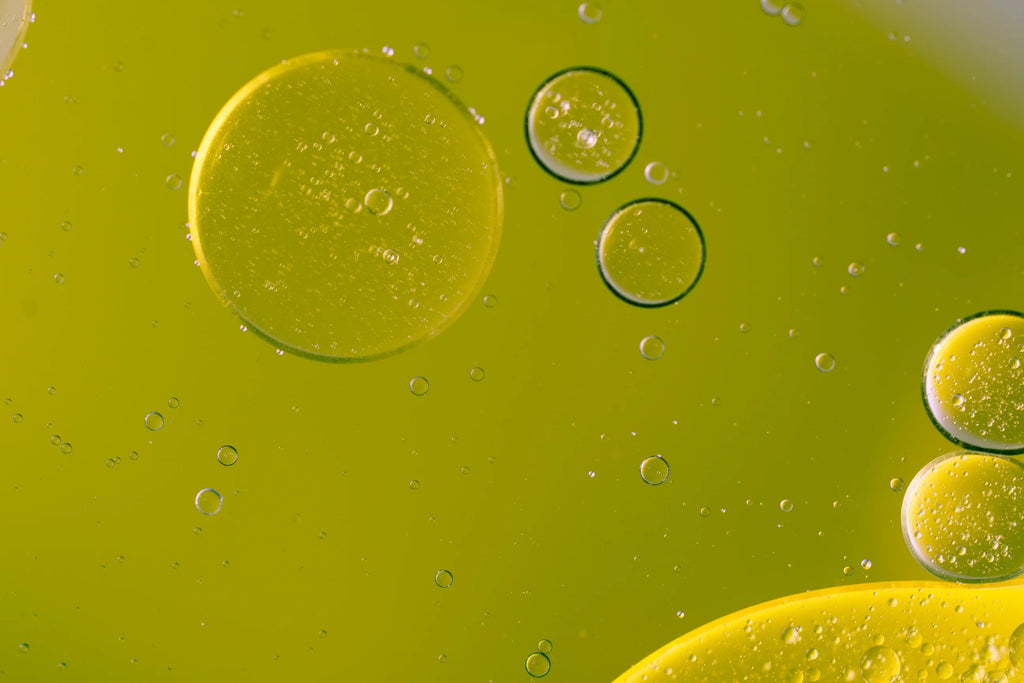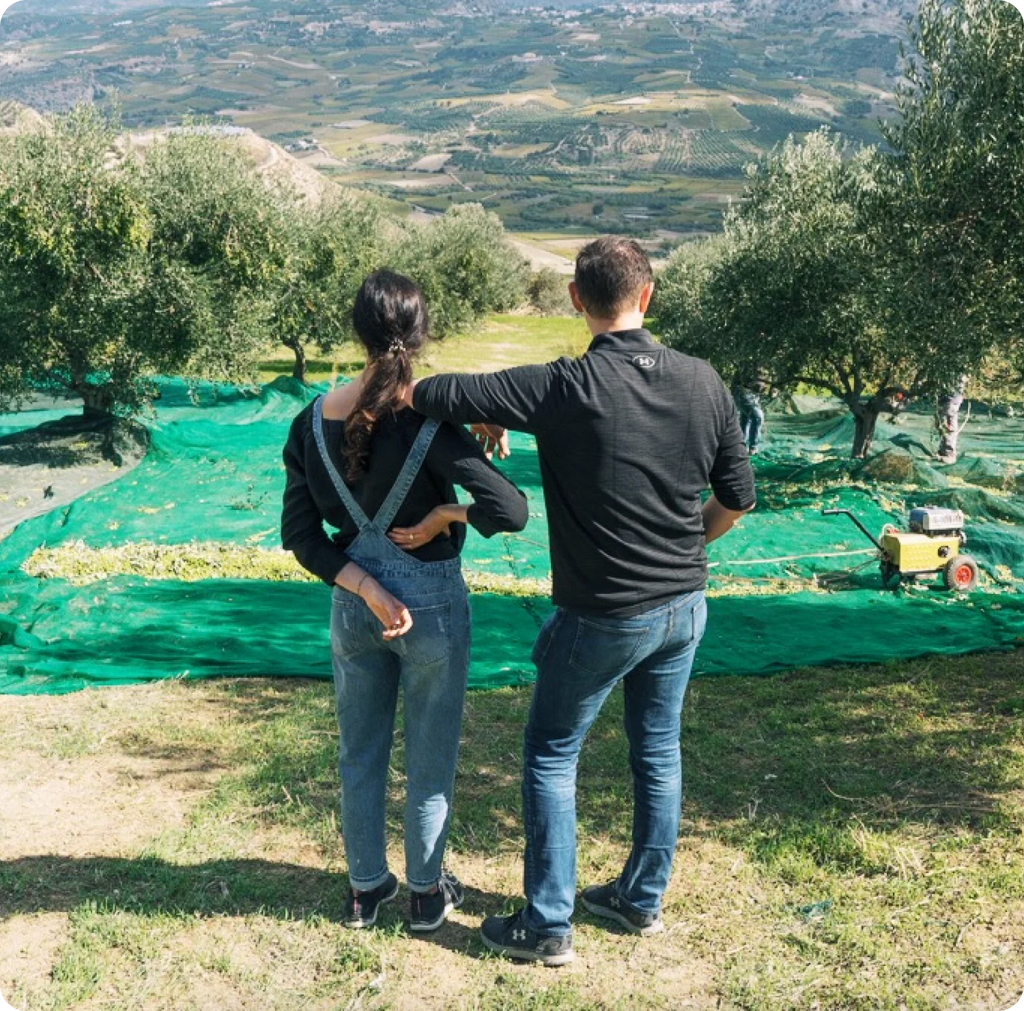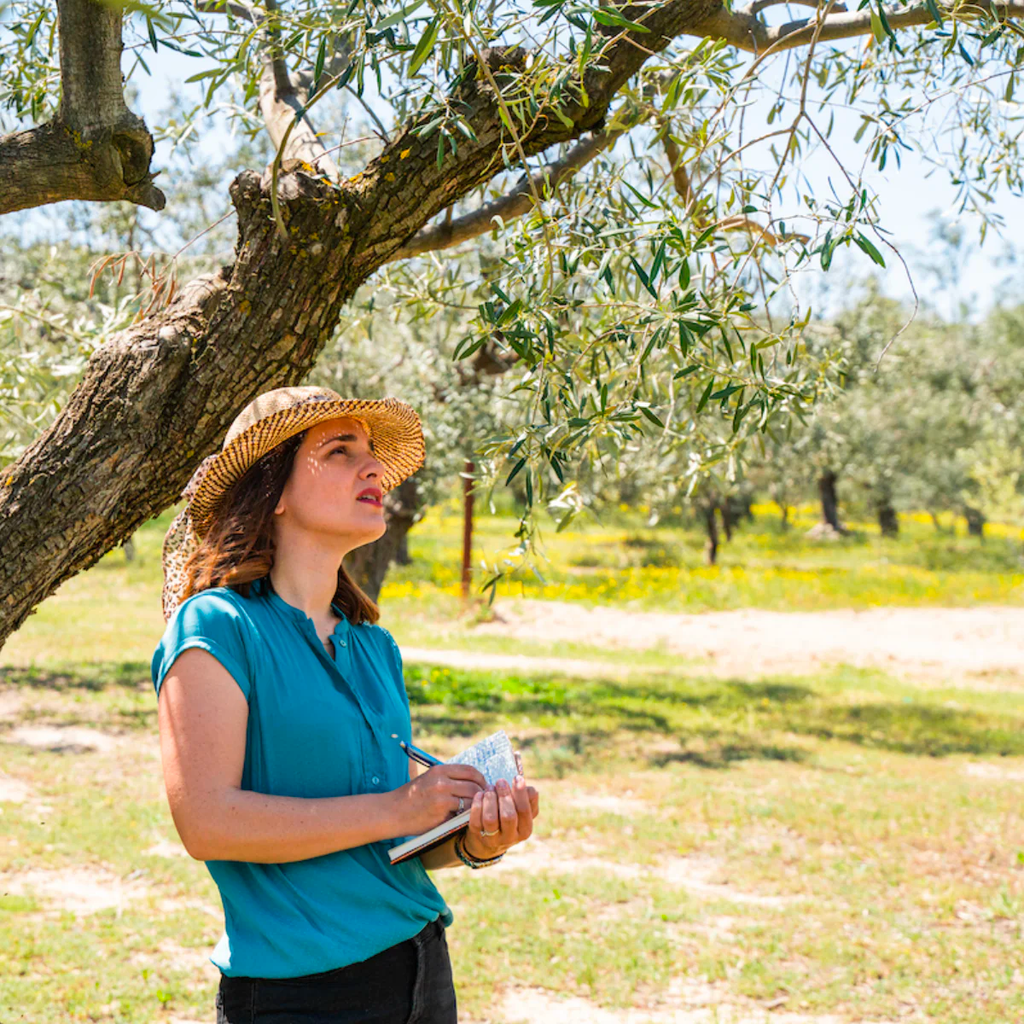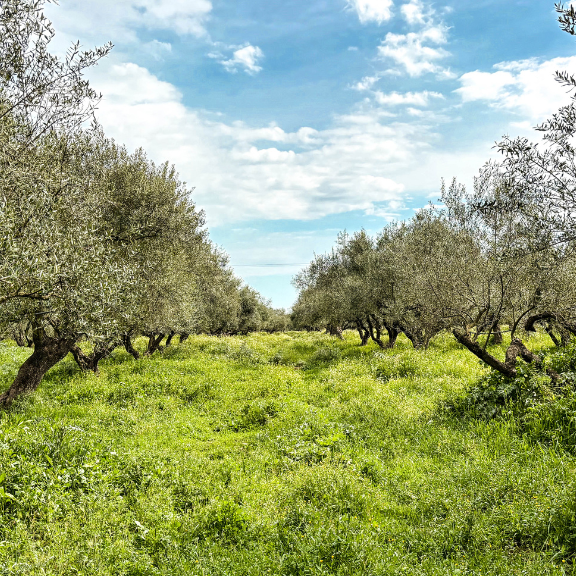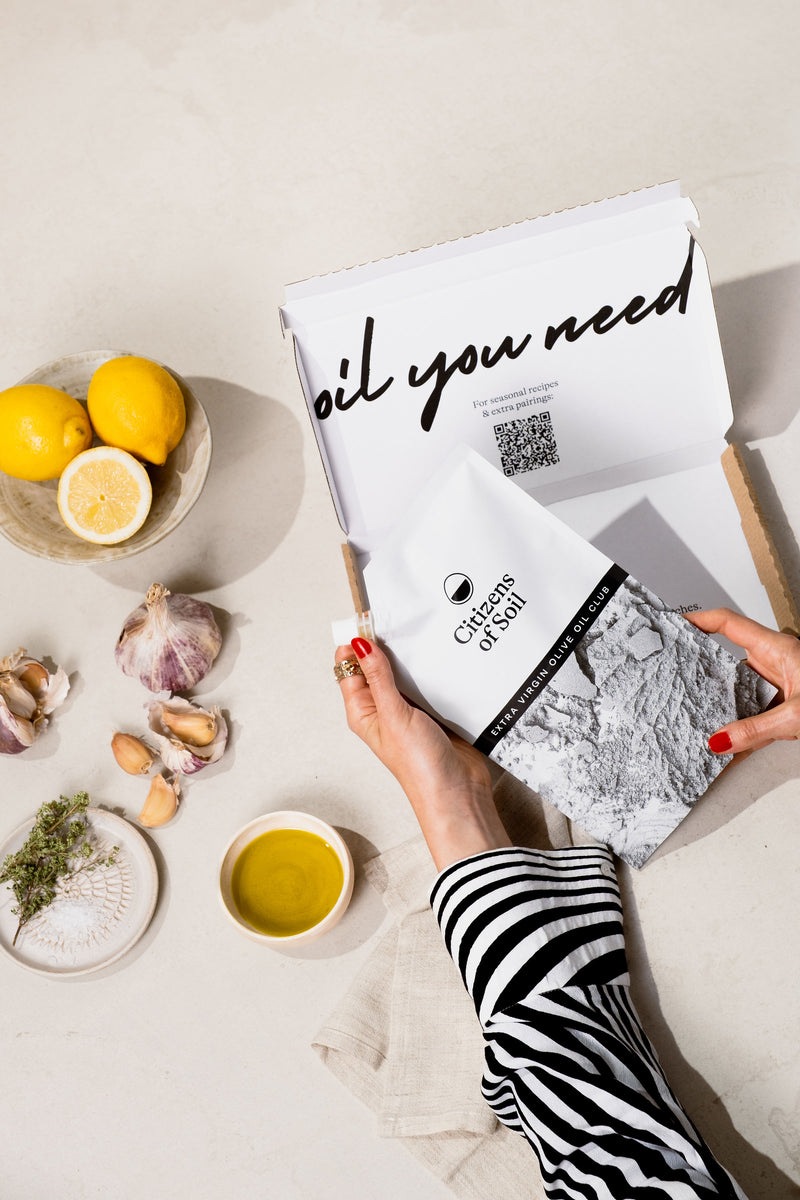Why is regenerative farming important in olive oil?
Call it "climate-smart", "carbon farming", "land restoration", or simply "regenerative", these practices are all about a creating harmony with nature that starts with soil and builds resilience from the ground up.
Research shows that higher levels of carbon are released into the air (as shown by this NASA visualisation which we first came across in the Kiss The Ground documentary). This is caused by the destruction of soil in conventional agricultural practices.
If you've been a part of our community for a while, you know that the protection of soil is—quite literally—the foundation of our business. When we first started digging into why the Amargiotakis family olive oil tasted so amazing, we realised much of it came down to the land itself. It was this intangible terroir, or sense of place, that was collectively represented by the soil itself.
Fast forward and we're now starting to work with regenerative farmers across the Mediterranean who are on the front-lines of the climate crisis. They face extreme droughts, floods, and unmanageable weather changes, while also being a crucial part of our food and nutrition even here in the UK.
But how did we get here?

The problem with industrial agricultural
It started with the industrialisation of our traditional farming which caused a disruption to the balance of our planet.
This went on to shut down diversified farming, which promoted biodiversity and resilience, and instead gave way to specialised practices like mono-crops and selective animal breeding.
Mechanisation added another transformation, which then streamlined work efficiency and removed the need for human labour.
And finally, the real killer came when petrochemical companies introduced their new methods of intensive chemical farming the 1960s.
"The industrialization of agriculture was hailed as a 'green revolution' that could feed the world. While perhaps well intentioned, the paradigm of industrial-scale monoculture has decreased food security worldwide, reduced the nutritional value of foods, and created a 'seed extinction' crisis. Currently, just 5 companies control 70% of the world’s seeds." — oneearth.org
A lot of this innovation came from the US, where its agricultural is described as “The most efficient in the world, at least in terms of the dollar and cent costs of production. The public health and ecological costs of industrialization, however, are not reflected in the prices of food." — John Hopkins University

Why we support regenerative farming
From natural disasters and species loss to food security and the public health crisis, many answers can be found in what's under our feet.
Specifically, we now know that the whole of life on land depends on a few inches of that top soil.
After all, soil is "the only magical material that turns dearth into life". When a tree or animal dies, it's the soil that decomposes it into new nutrient compositions to feed the land and plants.
And while that precious topsoil does a lot of work for humanity—it's going fast.
A third of the world's land is already degraded. And a shocking additional football pitch of soil is eroded every 5 seconds.
So now here we are with this dusty, increasingly lifeless dirt which has left us with around 60 harvest left on this planet. By some estimates, we've got less than 30 to address this terminal soil decline in certain regions.
Erosion, like we see all across the Mediterranean, is happening faster than its reformation. And seeing as soil is a *finite* resource, "its loss and degradation is not recoverable within a human lifespan."
But this is where regenerative farming comes in. It's about working *with* nature—not against it.
Nature is full of diversity, but conventional farming strips that back.
Regenerative farming thinks: What's the best thing to do to make the soil healthy? And then builds from there.
It's holistic. It's harmonious. It's natural.
Particularly for those in arid conditions, healthier soils can reserve more water, therefore being more resilient to the droughts and flooding caused by the changing weather patterns.
So this calls for a refresh to the whole system.
But it will take governments, businesses, and individual citizens to collectively transform the system.

Changing the way we support regenerative farmers
"Through natural climate solutions, food systems can contribute up to 37% of climate mitigation needed to reach 2030 climate goals. Yet, less than 2% of climate finance is directed to agri-food solutions." — UNFCCC
The World Economic Forum goes on to explain that if just 20% more EU farmers adopted "climate-smart agriculture" in the next couple of years, the following could happen:
- Greenhouse gas emissions would drop by 6%.
- Soil health would improve over an area equivalent to 14% of the EU’s agricultural land.
- Farmer incomes would be boosted €2-9 billion annually.
And yet farmers aren't switching to this system, in part because of education and in part because of money.
Playing in a commodity market like olive oil means that the market rates paid to farmers does not reflect any of the work or quality that can come from farming regeneratively.
This means a business like ours has to break that supply chain—cutting through the middle and extracting more of the value to pay more directly into the hands of farmers.
There's also a part that sits with farmers, who can remove the toxic input costs from synthetic fertilisers and pesticides, and work with nature's abundance—not against it. We're talking cover crops, organic solutions, and biodiversity.
So while we seek wider changes to a broken system, we're hoping to make small steps to champion the right farmers who can lead by example.
Their work and the tangible fruits of their labour pave the way for future harvests for their families and the wider world.
Our farming checklist
As we make our way across the Mediterranean the next few months to bring you back more delicious, flavourful oil from amazing people, here's what we look for in a grove that farms regeneratively:
- No or low tilling (the soil cannot be bare)! Ground cover is key.
- Remove the "cides"—chemicals like pesticides need to stop.
- Incorporate grazing animals (or their manure as natural fertilisers).
- Increase biodiversity (we're not about that "mono cult").
In many ways, it's about bringing olive groves back to a state that existed before the mass industrialisation of agriculture.
Or, simply, it's about replicating nature in the groves.
But beyond the urgent task of building back better ecosystems to ensure future harvests, there's *extra* benefits...
We're talking extra flavour and extra nutrition that only quality extra virgin olive oil can bring to the table.


